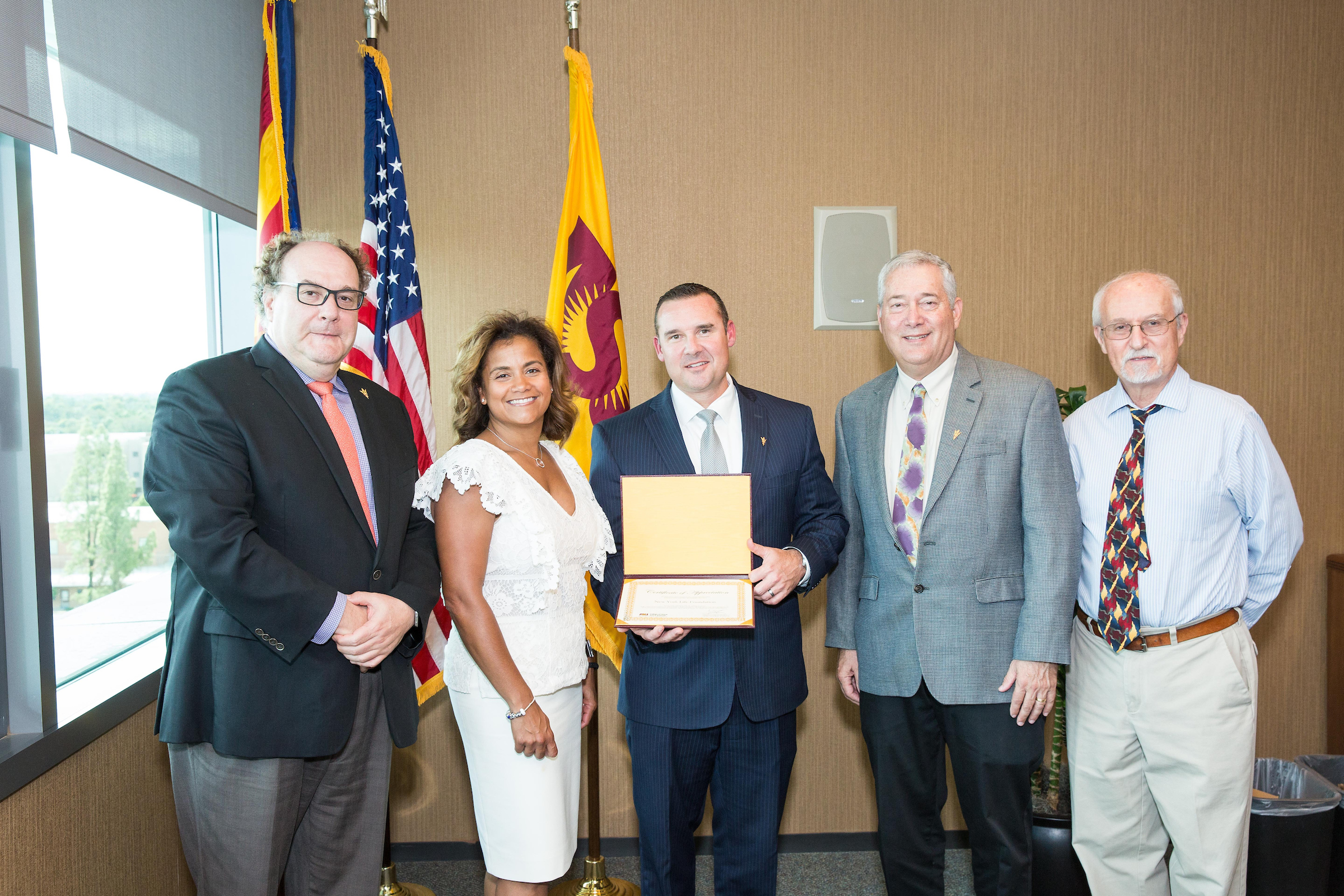Death is a part of life.
For some people — 10-20 percent, according to the American Psychiatric Association — it’s much too big a part of life.
For those people experiencing what the APA calls prolonged grief disorder, bereavement difficulties persist or grow instead of diminishing over time after a loved one’s death, preventing them from continuing on with their own lives.
ASU Regents’ Professor of psychology Irwin Sandler has been researching the subject for more than 30 years through the Family Bereavement Program, a 12-session program designed to promote effective parenting and teach useful coping skills following the death of a parent or caregiver.
Sandler and colleagues have just completed a 15-year follow-up with program participants that found a number of positive outcomes, including strengthening of resilient parenting“Resilient parenting” is a phrase Sandler and colleagues have coined to refer to a style of parenting that can be taught and which utilizes a set of skills known to promote emotional resilience in both parents and children., as well as reductions in distress, grief, depression, alcohol use, suicidal ideation and the use of mental-health services.
The researchers had previously conducted a six-year follow-up in which they found similar outcomes, but this most recent assessment is important because it shows that the positive effects of the Family Bereavement Program are lasting.
“What was most surprising, and most heartening,” Sandler said, “is that the change was not temporary. It lasted throughout childhood. … The fact that you can help people now with a relatively simple, short program, and the effects last six and 15 years later … and the fact that the effects are both for the parents’ mental health and the children’s mental health, that’s also very heartening.”
The strength of their earlier findings attracted initial interest from New York Life Insurance Company, which has invested more than $35 million in bereavement support of grieving children and their families since 2008. The company’s vice president, Maria Collins, heard about Sandler’s work at a conference and wanted to be a part of it.
“As a life insurance company, we’re in the business of being there for people when the unexpected strikes,” Collins said. “Being a champion for this issue perfectly aligns with and complements our core business – we invest in the emotional support and resources needed for bereaved families.”
(From left) Ferran Garcia-Pichel, dean of natural sciences at ASU; Maria Collins, New York Life Foundation vice president and corporate vice president; Marc Braden, managing partner of the New York Life Arizona office; New York Life agent Bruce Frank; and ASU Regents' Professor Irwin Sandler gather at ASU's Tempe campus in late September. Photo by Deanna Dent/ASU Now
During a September visit to the ASU campus, Collins, Sandler and others celebrated New York Life’s most recent commitment of $925,000 to help take the Family Bereavement Program from a university experiment to a service that can be offered to families nationwide.
“It’s the most successful program for bereaved children in the literature anywhere in the world, particularly in terms of long-term effects,” Sandler said. “But it’s an experimental program; it was done in a research center. How is that going to help people in the real world? The answer is it’s not going to help them unless we get it out there.”
Work is already underway to do that. Plans are in place for the Family Bereavement Program model to be provided at four child bereavement agencies across the country, one in the Phoenix area (New Song Center), one in Philadelphia, one in New Jersey and one in Oakland, California.
Volunteers at the center will use the methods developed by Sandler and his team to teach coping skills to parents and children over the course of 12 weeks. They will also have the assistance of a web-based component, so families can access program material whenever they need it.
The initial rollout will be monitored over three years, with researchers checking in with the centers to get feedback and assess the program’s effectiveness.
Sandler feels the results of the follow-up assessments and the momentum of the program’s dissemination reaffirm its potential to truly help people help themselves.
“What we’re trying to do is provide tools that really work — particularly with our focus on resilient parenting — for bereaved families,” Sandler said. “And we hope that the evidence that these skills can be learned and can really make a difference will encourage more people to try it out.”
Top photo: ASU ASU Regents’ Professor of psychology Irwin Sandler speaks to representatives of New York Life in late September in Tempe. New York Life has made a recent commitment of $900,000 to help take the Sandler's Family Bereavement Program from a university experiment to a service that can be offered to families nationwide.Photo by Deanna Dent/ASUNow
More Science and technology

A new chapter in national security research at ASU
In 1957, the Soviet Union launched Sputnik, the world’s first artificial satellite, into a low orbit around the Earth. Only the size of a beach ball, the satellite sent shock waves through the United…

One ASU researcher’s fix for freight’s costliest miles
America’s freight system is a miracle of modern logistics — until it isn’t. One snowstorm, one labor shortage, one delayed truck outside a major hub, and the whole process starts to wobble.…

ASU to help Arizona Army installation improve energy, lower costs
In a move that will support resilient energy systems in the places that keep our nation safe, Arizona State University signed a special agreement with the U.S. Army Installation Management Command on…

